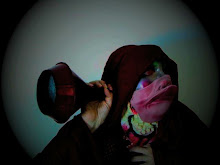 Syncopate is a musical term and means to shift the normal accent, usually by stressing normally unaccented beats, like when musicians do a different version of a song and they lengthen notes that were originally short. Hence syncopation syncopative syncopatable syncopatability insyncopatability insyncopatabilitation etc
Syncopate is a musical term and means to shift the normal accent, usually by stressing normally unaccented beats, like when musicians do a different version of a song and they lengthen notes that were originally short. Hence syncopation syncopative syncopatable syncopatability insyncopatability insyncopatabilitation etc
I'm busy writing an essay on Gertrude Stein and Sounded Language
A sentence has been heard … now listen.
There being some connection between liking and listening.
There is a sound and obliqueness
Ruth Salvaggio in her text The Sounds of Feminist Theory suggests that we pay a new close, closer attention to the sound of language – something she insists is neither voice, nor the spoken word, nor metaphor… ‘I mean the actual effects of sounding, wavering language in critical and theoretical writing- a distinctive turn towards the oral within the panorama of contemporary thought’. This place of resonance she tells us, will ‘instigate a new resounding language (that will) alter what we (can) hear and see and know’(S133).
I am reading Gertrude Stein as Feminist Theory and a theory about this sounding. Stein whilst not a feminist is a central to…feminist theory in terms of language, in that it offers an ‘indulgence in the transmutive potential of words, their ability to affirm and question and resist and endlessly suggest meanings, to be used for everything they are worth, and more’ (S5) her writing it can be argued is written as such but… I am vitally interested in work that ‘crosses over and beyond linguistic border, fusing and refusing the boundaries’ and as a visual artist I have come to feel after a 40 year engagement with the practice, like Salvaggio, that the ‘metaphors of visibility in women’s text will only go so far in helping us follow the changing and refracting properties of language as a medium’ in potential. The ‘possible meanings generated in a mobile language and epistemology question simplistic links between vision and knowledge, turn away from the idea that writing is a mere ‘transition’ of truth and note how language is continual altering what we see and therefore what we know.’ Steins work vibrates with ‘sounded oralities’…
Dupless echoes this ‘language does not lie still there is no permanent referent for words rather language suggests, evokes and resonates….













No comments:
Post a Comment